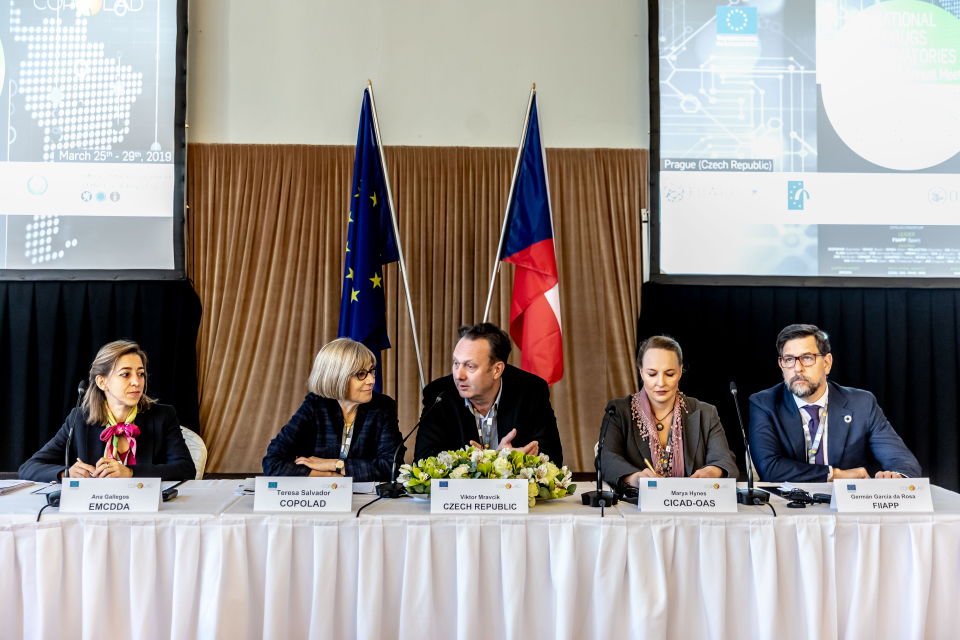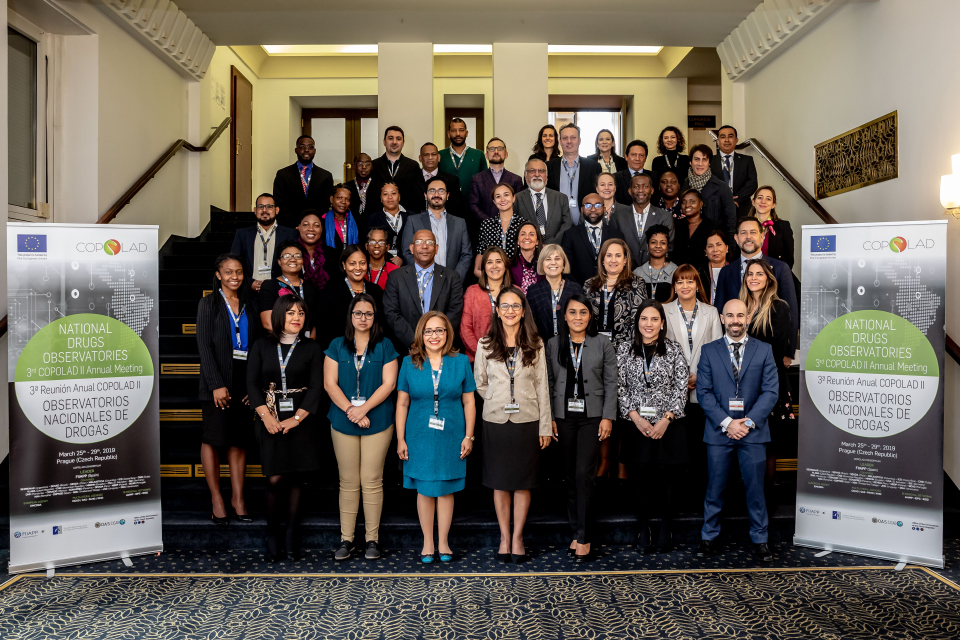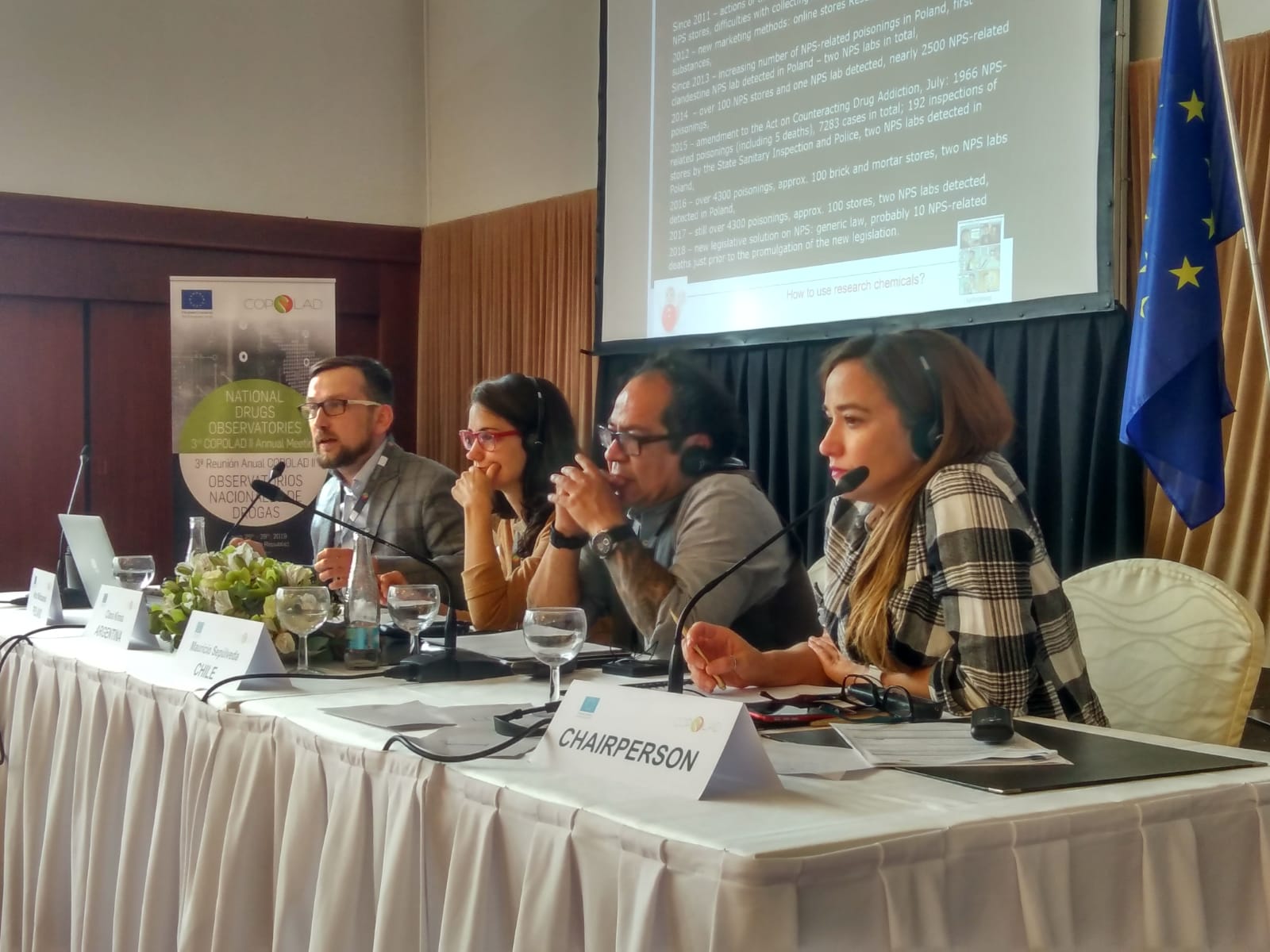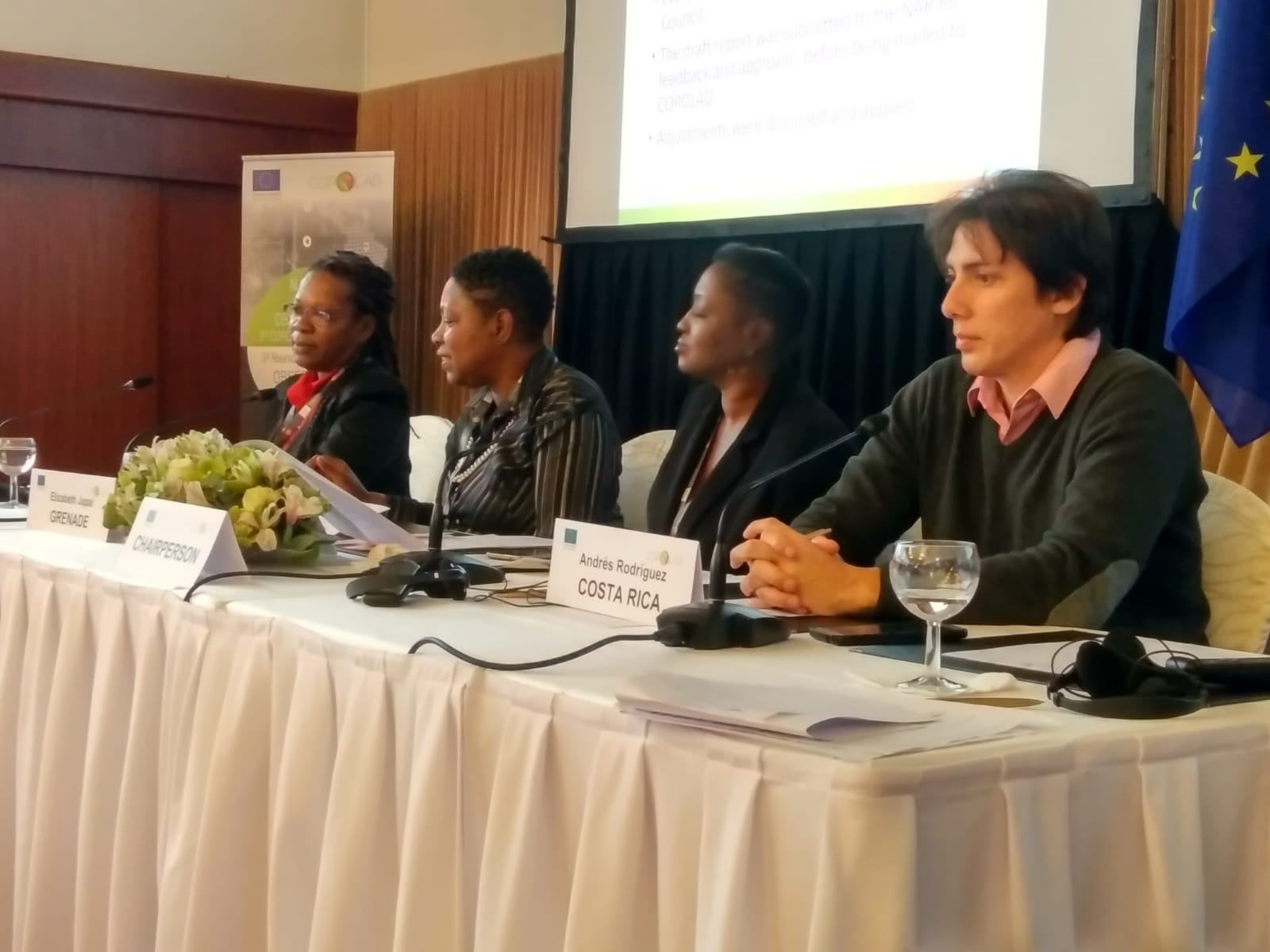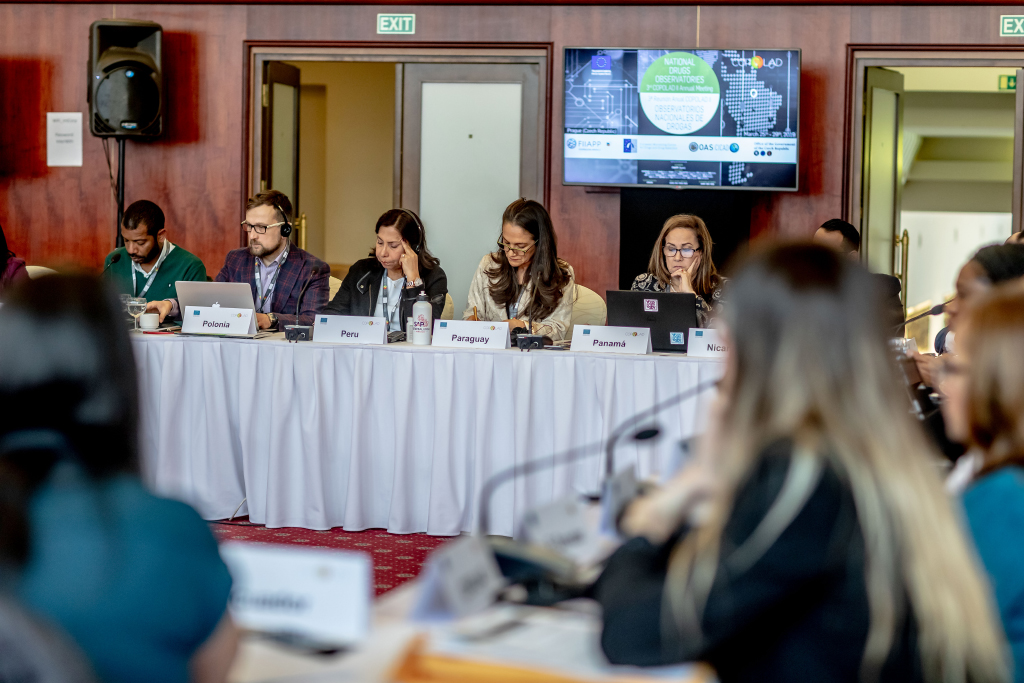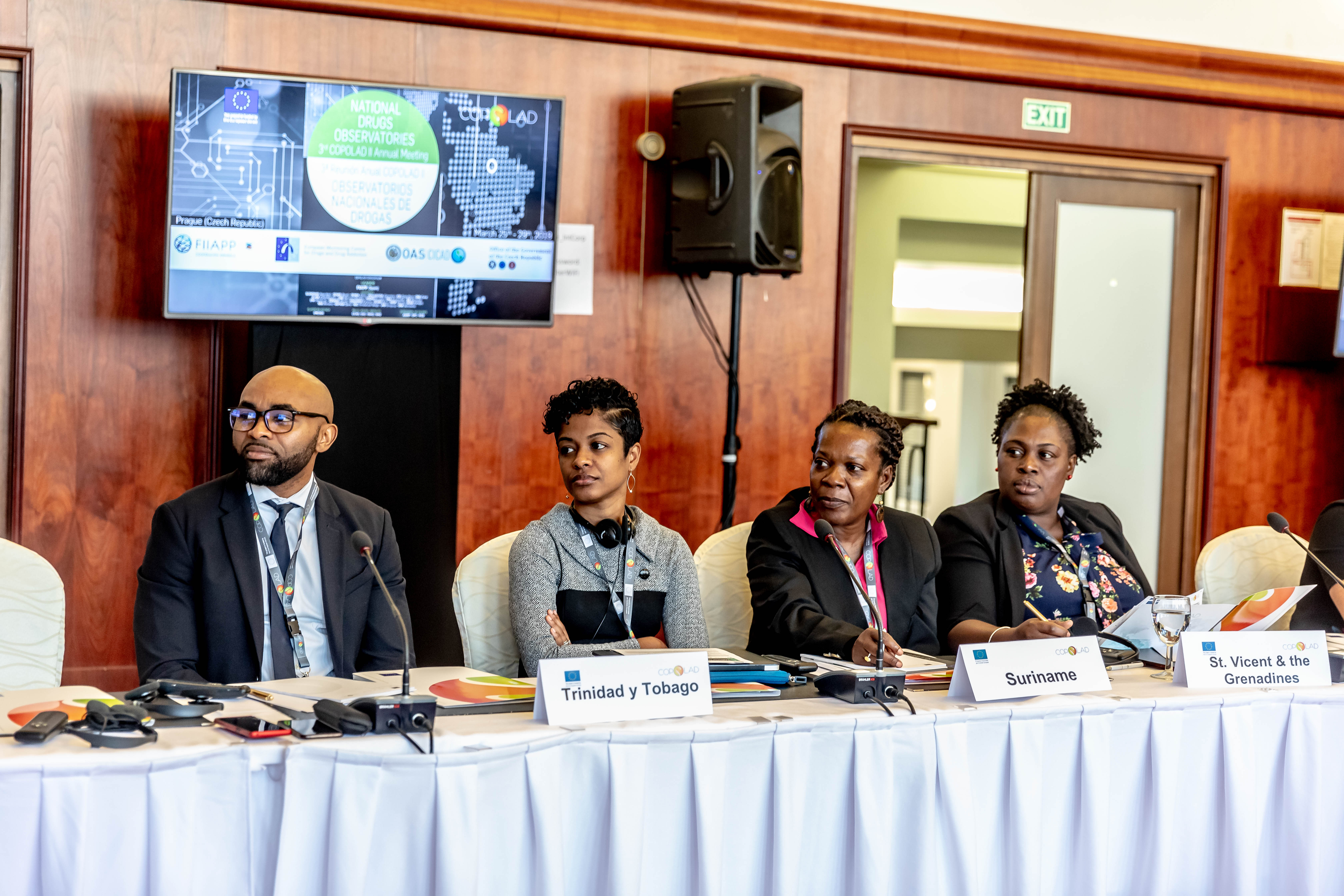The most relevant event for the National Drugs Observatories Component was the Third Annual Meeting of National Drugs Observatories, held in Prague, Czech Republic, between 25 and 29 March 2019.
The representatives of the National Drugs Observatories (NDOs) of the CELAC countries, the regional observatories: OID-CICAD-OAS and the EMCDDA, the National Observatories of the European reference countries for the different activities developed so far by the Working Groups (WGs) within the framework of COPOLAD II, the head of the UNODC Global Smart Program and professional experts and tutors who participated in different WGs, were summoned. In total, 59 people attended, and 28 National Drugs Observatories in the CELAC countries were represented, 4 of the European reference countries, the OID-CICAD-OAS, the EMCDDA and the UNODC.
In the meeting the leading countries of each of the four activities developed by the WGs, presented their results achieved and shared, in addition, the experience of knowledge and management on the topics worked on: Strengthening of National Early Warning Systems (EWS); Estimates of problematic drug use in population surveys; Elaboration of a national drug report; and New methodologies for better understanding of emerging threats and new drug-related issues.
The joint reflection space was an important input for each WG to incorporate elements and guidelines to close their still unfinished documents and define priority needs to be covered in the future.
In relation to the knowledge and management process, emphasis was placed on disseminating the knowledge reached by each WG, for which specific training sessions were defined on each topic. It also highlighted the achievements made through the process of joint elaboration of the products developed, with the participation of the NDOs, the EMCDDA, the OID-CICAD, experts, leading countries and European reference countries. And finally, experiences were shared in management of National Drugs Observatories that had effectively advanced in the implementation of their Early Warning Systems and in the elaboration of their National Drug Reports.
The magnitude and richness of what was produced by the countries in the development of the activities of component 1, was evident in the 51 presentations, which counted with English– Spanish simultaneous translation and vice versa, in order to ensure the complete participation of all the participant delegations and professionals.
In short, although at the end of the first quarter of 2019, it is noted that a minority of countries still need some more time to implement the internal developments required for the establishment of an EWS, or for the elaboration of their first National Drug Report, it is important to note that all countries are completing their tasks and fulfilling their commitments. In practice, this implies that, in mid-2019, most of the countries included in the WGs will be reaching their expected objectives, according to the plans initially envisaged in the methodological proposals agreed between all the members of the Working Groups of COPOLAD II.


